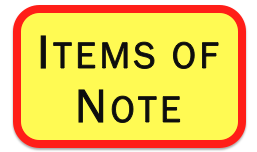On October 27, the Office of the U.S. Trade Representative (USTR) issued “Guidelines for Consultations and Engagement” (Guidelines) for consultations with Congress, the public and advisory committees relating to negotiations of trade agreements that are conducted under the Bipartisan Congressional Trade Priorities and Accountability Act (Trade Priorities Act). That Act specifies negotiating objectives for trade agreements and guarantees that legislation implementing a trade agreement will be given an up-or-down vote without any amendments. It also establishes new and expanded consultation requirements that apply throughout the trade negotiation process and directs USTR to develop guidelines for them, in consultation with the chairs and ranking members of the Senate Finance Committee and the House Ways and Means Committee. This post describes the USTR Guidelines, which include both existing practices, as well as new ones.
Engagement with Congress: The consultations with Congress are aimed at enabling USTR and other agencies to provide detailed information on the status of trade negotiations to Congress, for members of Congress to provide input on U.S. negotiating positions and efforts to achieve the Act's negotiating objectives and for USTR to adjust U.S. negotiating positions and strategies, as appropriate, in response to congressional input. USTR commits to hold briefings for members of Congress on the status of trade negotiations and any changes in law that may be needed to implement a trade agreement. It will also consult with congressional committees on U.S. text proposals. In addition, the trade office describes in the Guidelines when it will provide negotiating text (U.S. proposals and consolidated text) to members of Congress and congressional staff and accredit them for negotiating rounds.
Public Engagement: Under the Guidelines, consultations with the public will seek to facilitate transparency, encourage public participation and promote collaboration throughout the negotiating process. To facilitate public transparency of trade negotiations, USTR will release timely information and produce reports, including those mandated by Congress on the environmental, employment and labor aspects of trade agreements. It also promises to publish a detailed summary of the specific negotiating objectives, at least 30 days before initiating negotiations of a trade agreement, provide updates on the status of negotiations, and publish online the text of a trade agreement at least 60 days before the President signs it. In addition, the Trade Representative will solicit public comments on trade negotiations and proposed trade agreements by issuing Federal Register notices and will make all non-confidential comments available electronically. It will also hold public hearings on negotiations and public stakeholder events, as well as enhance its digital media outreach.
Engagement with Advisory Committees: Since the establishment of the trade advisory system by Congress in 1974, USTR has consulted closely with trade advisory committees throughout trade negotiations. The Guidelines recognize that these committees “serve as a unique forum for discussions of trade issues" as they bring expert, outside advice into the government decision-making. To respond to the Act's requirement that it enhance its coordination with these committees, USTR commits to regularly brief the committees on ongoing and future trade negotiations and provide them with access to the negotiating text -- both U.S. proposals and consolidated text.
Chief Transparency Officer: The Trade Priorities Act requires USTR to appoint a Chief Transparency Officer to consult with Congress and advise USTR on transparency policy, coordinate transparency in trade negotiations and assist the public in understanding trade negotiations. The Chief Transparency Officer will play an active role in developing and implementing the Guidelines and ensuring that policies and practices in negotiations are consistent with them. In September, USTR named Tim Reif, its General Counsel since 2009, as its first Chief Transparency Officer.
Jean Heilman Grier
November 2, 2015
Related Posts
New Trade Legislation
TPA Negotiating Objectives for Government Procurement
Trade Advisory Committees: Eligibility Broadened


